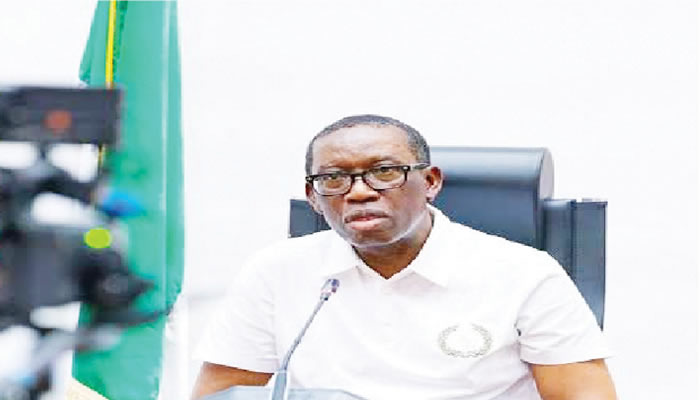Paragraph 1: The Political Landscape and Okowa’s Shift
The Nigerian political scene is buzzing with activity as politicians strategize for the 2027 elections. Former Delta State Governor, Ifeanyi Okowa, recently made headlines by defecting from the Peoples Democratic Party (PDP) to the ruling All Progressives Congress (APC). This move followed the 2023 presidential election where Okowa served as the running mate to PDP candidate Atiku Abubakar. The election outcome, coupled with perceived internal dynamics within the PDP, appears to have prompted Okowa’s decision to switch allegiances. His defection underscores the fluidity of political loyalties and the ongoing realignments shaping the Nigerian political landscape.
Paragraph 2: Atiku’s Impending Departure and Coalition Building
Adding another layer of complexity to the political maneuvering is the revelation by Okowa that Atiku Abubakar, the former Vice President and PDP presidential candidate, is also planning to exit the PDP. This development follows the announcement of a coalition formed by Atiku, Labour Party’s Peter Obi, and other political figures, aiming to challenge President Bola Tinubu in the 2027 elections. This coalition’s formation suggests a strategic effort to consolidate opposition forces and present a united front against the ruling party. Atiku’s anticipated departure from the PDP further complicates the party’s future trajectory and raises questions about its ability to maintain its position as a major political force.
Paragraph 3: Okowa’s Reflections on the 2023 Election and Regional Sentiments
Okowa’s recent statements shed light on his perspective on the 2023 election. He expressed regret for not aligning with the prevailing sentiment in his region, which favored a Southern presidential candidate. Despite recognizing this preference among his constituents, he accepted the nomination as Atiku’s running mate, a decision he now views as contrary to the will of his people. This reflection underscores the tension between party loyalty and regional considerations, a dynamic that often plays a significant role in Nigerian politics. Okowa’s acknowledgment of this tension highlights the delicate balance politicians must strike between national party platforms and local constituencies.
Paragraph 4: Affirmation of Local Support and Leadership Continuity
Despite the political shifts, Okowa asserts that his influence and leadership remain strong within Delta State. He pointed to the successful election of Sheriff Oborevwori as the current Governor of Delta State as evidence of continued confidence in his leadership. Okowa views this electoral victory as an endorsement of his political choices and a testament to his enduring popularity among his constituents. This assertion of local support suggests that Okowa’s defection to the APC may not necessarily translate into a loss of his political base within Delta State.
Paragraph 5: Communication with Atiku and the PDP’s Future
Okowa disclosed that he communicated with Atiku before leaving the PDP, informing him of impending stakeholder meetings within the party. He indicated that the outcome of these meetings would determine his future political course, expressing discomfort with the PDP’s direction. Okowa’s communication with Atiku suggests an attempt to maintain a level of transparency regarding his political intentions. His departure, combined with Atiku’s expected exit, raises questions about the PDP’s future and its capacity to effectively compete in the upcoming elections. The party now faces the challenge of rebuilding its leadership and regaining momentum in the face of these high-profile departures.
Paragraph 6: Implications for the 2027 Elections and the Political Landscape
The evolving political landscape in Nigeria, marked by party defections, coalition building, and shifting alliances, sets the stage for an intriguing 2027 election cycle. Okowa’s move to the APC, Atiku’s anticipated departure from the PDP, and the formation of new political coalitions create a dynamic environment with unpredictable outcomes. These developments underscore the constantly shifting nature of Nigerian politics and the fluid loyalties that characterize the pre-election period. The 2027 elections promise to be a closely watched contest, with implications for the balance of power and the future direction of the country.














